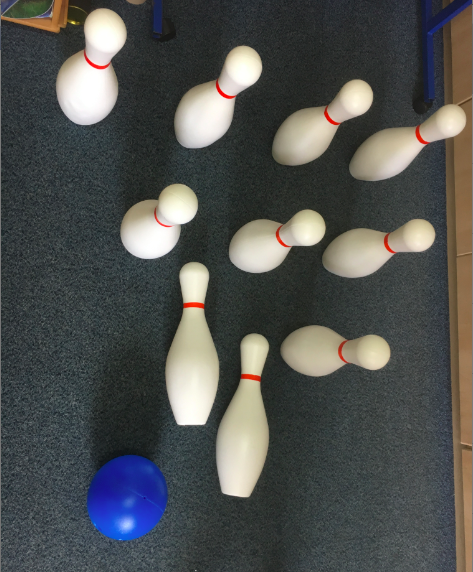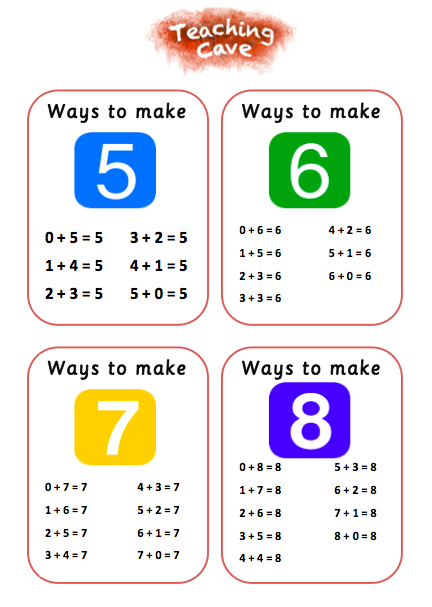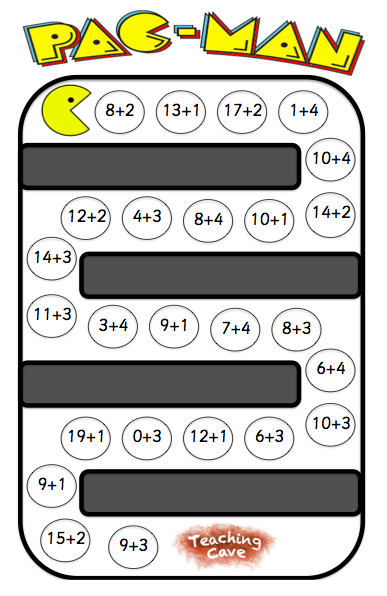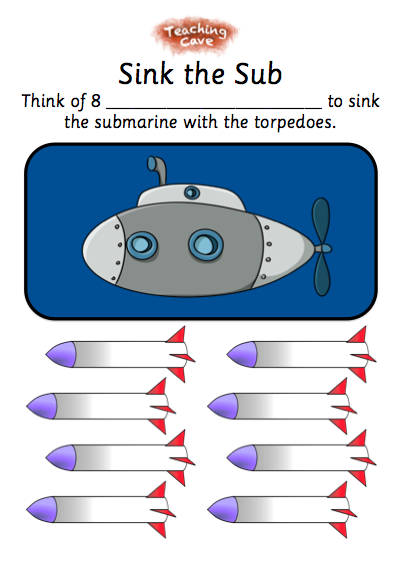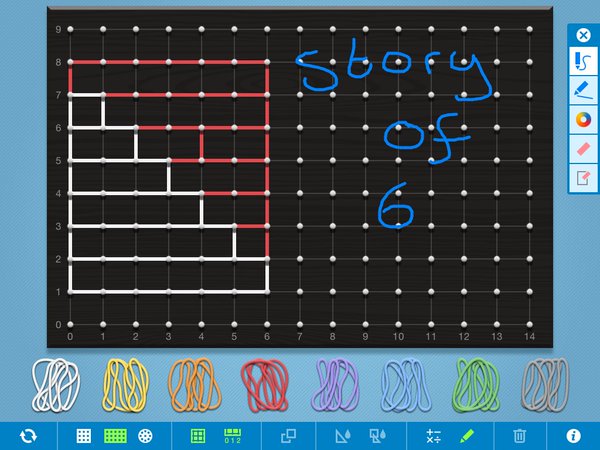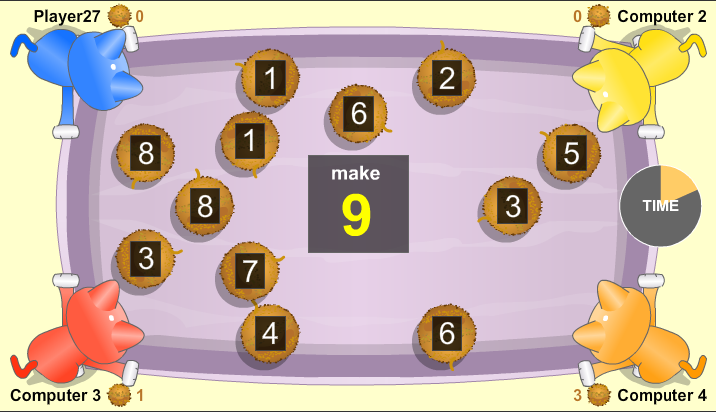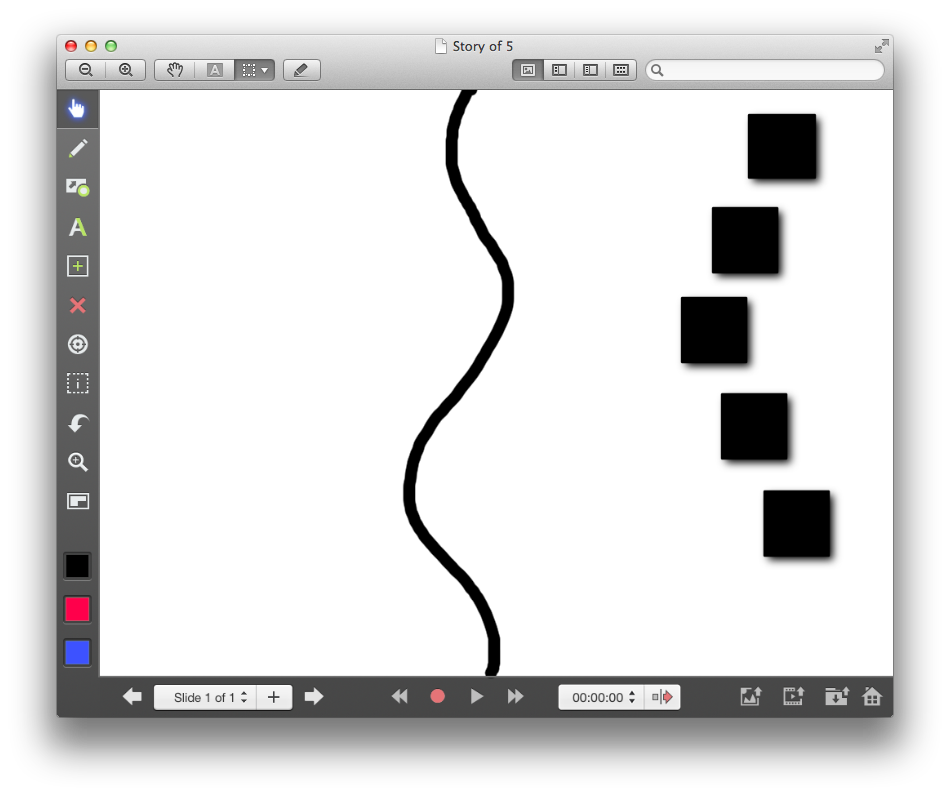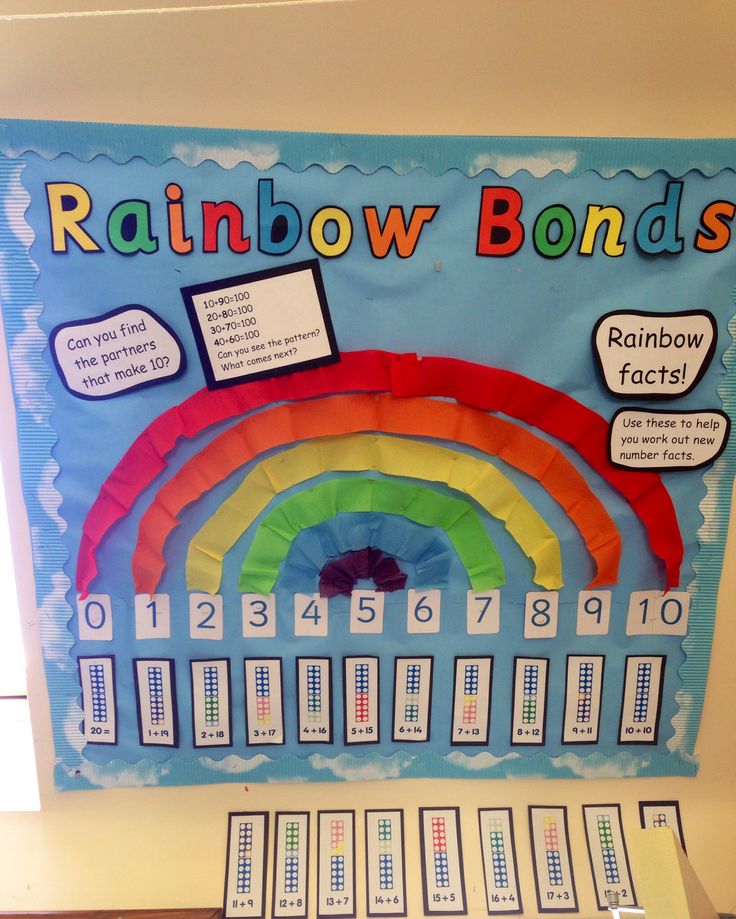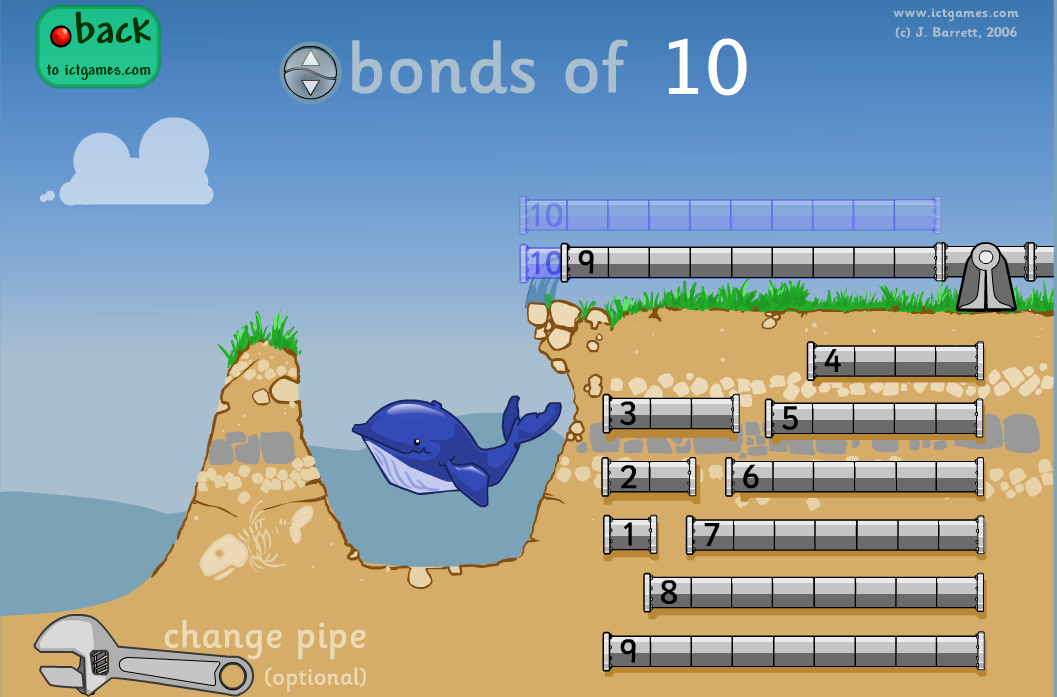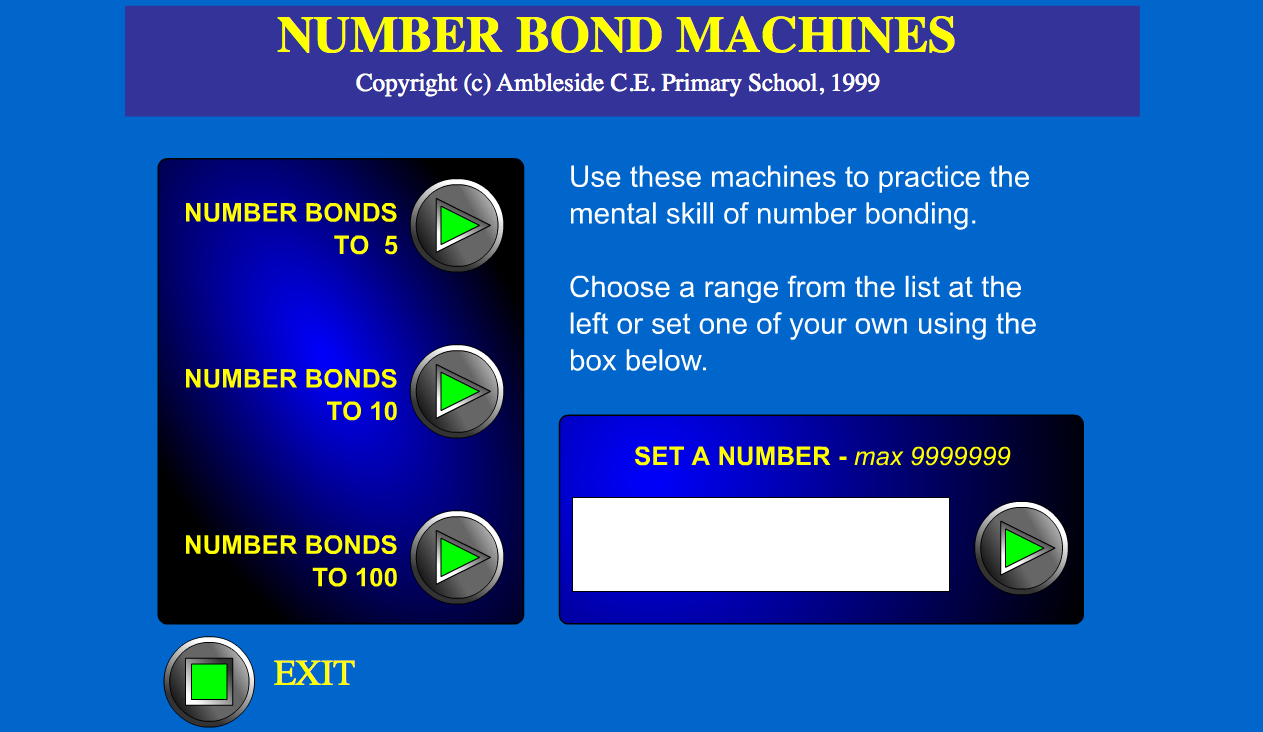Number Bonds
Ten Pin Bowling
Ten pin bowling is a great way to introduce ways to make 10.
For example, the children will say, “Three down, seven up.” and recite the bonds for a quick recall. Your less able children will count to help them form an early understanding of the bonds.
Number Bonds Flashcards
This resource develops understanding and quick recall of number bonds from numbers 1 to 10.
On each flashcard, the children can see all the different ways to create the number shown, much like they would when using cuisenaire rods.
This can be used to reinforce the quick recall of number facts and can be given home at the end of the week, month, term and year to consolidate the learning of number bonds.
A must have resource for Foundation Stage teachers.
Pacman - Number Bonds
This game helps children to work on their number bonds recall. This is an editable game, so you can create a game to suit the ability of your class. This particular example is addition so you can change the numbers to suit the number facts you are learning about.
The children will get into pairs. The first child will start at the Pacman and will try to answer all the sums to reach the Teaching Cave logo. The second player will choose a ghost and follow player 1’s Pacman. Every 5 seconds, player 2 will move their ghost to the next word in an attempt to catch the Pacman.
Once the children have grasped the game, reduce the waiting time for the ghost.
Sink the Sub
Allow your class to think of as many ways to make a number of your choice to help them develop a quick recall of number facts.
Story of Number and Geoboard
This activity works on the development of a quick recall of number bonds.
The children use the Geoboard app to work on story of number.
Story of 9
In this game your children are challenged on their quick recall of number bonds to 9.
The children must search through the numbers and select as many ways to make 9 in the quickest time possible.
Number bonds are a crucial element of number because if a child knows 6 + 3 = 9, they know 16 + 3 = 19 and so on. This is number pattern skills.
Story of Number - Editable
This resource and activity card helps your children develop a quick recall of number facts. The resource is editable so you can modify it to suit your class.
In the top resource card, your children must circle as many ways to make 10 as they can. They must be sure to count carefully as not all the sums add to make 10. Each sum is separated by a dash.
Once the children have completed that activity, they must then write all the ways to make 10 and complete the written problems.
Story of Ten Rainbow
This is a very creative way of teaching your children the different ways of making 10 in a fun way.
Story of Number and Explain Everything
This lesson would work with any story of number activity. Your children must be able to add shapes to the slide and move them, add slides and use the record function.
To see the lesson plan click here.
Playing Card Bonds
Allow your children to create different bonds to a number of your choice using playing cards.
Number Bonds to 10
Create different number bonds to 10 and save the whale. In this activity, your children must match the pipes to create 10.
Number bonds are important for quick recall and for pattern recognition in number throughout the key stages.
Numberbonds
Depending on the level and ability of your children, you can choose to practise number bonds to any number up to 100.
You simply input a target number, then the machine gives you one number and you have to type in the bond to the selected target number. Click the button to check your answers and keep a record of you high scores. A fantastic resource for Foundation Stage and Key Stage 1 as each sum is marked automatically, making is simple to determine who is meeting objectives and who needs more practice.
The flexibility of this game makes it a favourite amongst Foundation Stage and Key Stage 1 Children.

